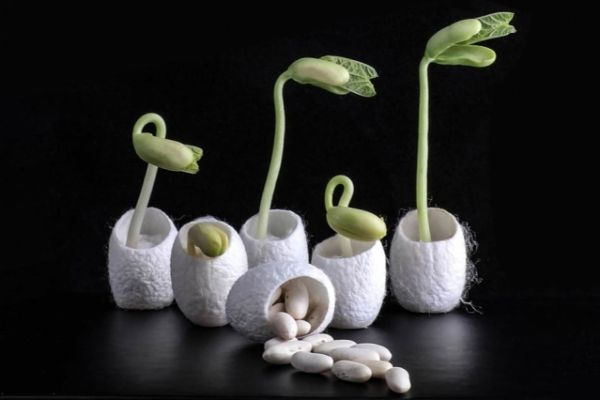Providing seeds with a protective coating that also supplies essential nutrients to the germinating plant could make it possible to grow crops in otherwise unproductive soils, according to new research at MIT.
A team of engineers has coated seeds with silk that has been treated with a kind of bacteria that naturally produce a nitrogen fertilizer, to help the germinating plants develop. Tests have shown that these seeds can grow successfully in soils that are too salty to allow untreated seeds to develop normally. The researchers hope this process, which can be applied inexpensively and without the need for specialized equipment, could open up areas of land to farming that are now considered unsuitable for agriculture.
The findings are being published this week in the journal PNAS, in a paper by graduate students Augustine Zvinavashe ’16 and Hui Sun, postdoc Eugen Lim, and professor of civil and environmental engineering Benedetto Marelli.
Read more at Massachusetts Institute of Technology
Image: Researchers have used silk derived from ordinary silkworm cocoons, like those seen here, mixed with bacteria and nutrients, to make a coating for seeds that can help them germinate and grow even in salty soil.
Image courtesy of the researchers


